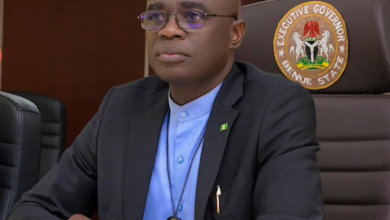Aviation ministry to balance use of UAS across industries

The Federal Ministry of Aviation and Aerospace Development says it will thrive to balance the benefits of Unmanned Aircraft Systems (UAS) otherwise known as drones, across all industries.
Dr Emmanuel Meribole, Permanent Secretary of the ministry, said this at the fourth DroneTecx Conference and Exhibition on Wednesday in Lagos.
Meribole said that the need to balance the UAS space was necessary as it had become increasingly prevalent globally.
“While the ministry desires the advancement associated with the use of drones, focus must at all times remain on protecting civil aviation and countering their exploitation by non-state armed groups and terrorists.
“We must find a balance between the significant benefits UAS offers across various industries and incidental risks to aviation infrastructure and national security.
“Unauthorised UAS operations near airports and deliberate disruptions to civil aviation operations underscore the need for robust regulatory frameworks and effective countermeasures.
“The Office of the National Security Adviser (ONSA) collaborates with the Nigeria Civil Aviation Authority (NCAA) to address the use of UAS by non-state actors for reconnaissance that pose complex security challenges,” Meribole said.
He urged all stakeholders and Nigerians to collectively contribute to national security.
He added that Drone Tecx should also be used as a positive forum to promote awareness, cooperation, and innovation among stakeholders to fully realise the benefits of UAS technology.
”As well as safeguarding against potential risks, ensuring a safer and more secure future for all.”
Speaking of the Remotely Piloted Aircraft System (RPAS) sector, Meribole said that the sector was globally evolving rapidly and played essential roles in agriculture, health, construction, logistics, and public safety.
He said that the sector had a projection indicating a $260 billion market by 2030, noting that some African nations like Rwanda, Uganda, and Ghana are actively participating in this global race for leadership in RPAS technology.
He added: “Recent regulatory developments, including amendments to ICAO annexes and the approval of new procedures, lay the foundation for an international regulatory framework for RPAS operations.
“Nigeria is actively engaging in this process while prioritising safety and security considerations.
“Unlike traditional aviation, RPAS involves diverse stakeholders beyond aviators such as service providers, surveyors, geologists, engineers and so on, introducing unique safety and security challenges.
“NCAA is tasked with providing robust oversight to ensure safe and secure RPAS operations, supported by other aviation agencies and others alongside the supervision of the federal ministry.
“Efforts to regulate RPAS operations in Nigeria are undeniable, such as the release of Part 21 of the Nigeria Civil Aviation Regulations being the regulatory framework, sets out requirements for certification, registration, operations, and surveillance of RPAS.”
According to Meribole, the Nigeria Airspace Management Agency (NAMA) essentially provides UAS Traffic Management (UTM) and manages the system.



